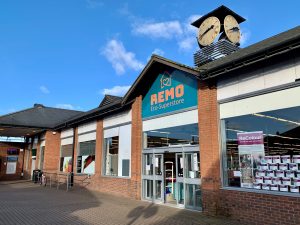“The solution is right under our nose” SSE CEO calls for action to support the transformative power of social entrepreneurship
29 May 2024
 School for Social Entrepreneurs CEO Alastair Wilson calls for action to support the transformative power of social entrepreneurship
School for Social Entrepreneurs CEO Alastair Wilson calls for action to support the transformative power of social entrepreneurship
A Tale of Resilience
The past decade has been difficult for businesses worldwide, with economic turbulence exacerbated by recent inflation spikes. Start-ups, particularly smaller organisations, have borne the brunt of these challenges in the UK, amplifying the strain on the nation’s high streets. Yet, amid this turmoil, social enterprises have emerged as beacons of hope, opening their doors and staying afloat, especially in more economically marginalised communities.
The recent AKOU evaluation report into the ten-year programme facilitated by SSE and funded by The National Lottery and Lloyds Banking Group unveils a staggering 81% two-year survival rate for its social ventures, outperforming the UK SME average of 73%.
In this blog Alastair Wilson, CEO of the School for Social Entrepreneurs (SSE) shares his views and vision on what the sector needs to continue to thrive and underscores the importance of acknowledging the economic climates in which social enterprises operate.
“When policy makers are exploring interventions to rejuvenate and catalyse economic activity in these cold spots they need to do so realistically. Often there’s intergenerational dependency, very low skills base and very low money circulation. “
Targeting Broken Markets
Wilson notes that social entrepreneurs often gravitate towards what he terms “broken markets”: economically disadvantaged communities grappling with complex social issues. “These entrepreneurs are driven not by profit alone but by a genuine desire to effect positive change in these communities. For the past 25 years, SSE has existed to support these visionary leaders, offering expert-led sessions, action learning sets, and grants.”
Innovative Funding Models
Like any business, social enterprises need access to finance to start, scale and grow. But more than ever that support package needs to be coupled with skills development and access to networks. At SSE, Wilson has pioneered a new way of grantmaking, which teams up capacity building with incentivised funding to encourage social entrepreneurs to build their own trading base and grow in resilience
“To help social enterprises achieve sustainability and deliver social value, they need support. Through our Lloyds programme, we have pioneered a new way of grant giving that has proven effective. This incentive grant funding encourages them to pursue their traded ambitions, acquire customers and partially indemnify them from the costs of the process of customer acquisition. We work with them in lockstep to help them build their business. Upon completion of the programme, students not only have a network of peers but also a loyal customer base supporting their work and product.”
 One social enterprise that transformed its business model with Match Trading is REMO, a paint reuse and recycling organisation based in Cambridge. After Match Trading they boosted their income from trading by 71%.
One social enterprise that transformed its business model with Match Trading is REMO, a paint reuse and recycling organisation based in Cambridge. After Match Trading they boosted their income from trading by 71%.
“Not only did the programme help us to learn how to increase traded income and how to respond to that in an agile way, it also gave us the confidence to strategically invest in the development of the organisation via social investment and larger pots of capital based finance.”
Says Nikki DiGiovanni, a key figure in REMO’s leadership. As a result, REMO experienced not just incremental growth but a substantial increase in turnover, from £125K in 2017 to £263K in 2022. Read more about REMO and Match Trading.
“To get ventures to that Nirvana of being a social enterprise that can trade and sustain and deliver social value and perpetuity, they do need a helping hand and we’ve pioneered through the Lloyds programme and now have the evidence base for this new way of grant giving.”
Redefining Economic Development
Wilson emphasises that despite economic shocks, social enterprises remain resilient pillars within communities, surpassing the survival rates of private-sector SMEs. However, he urges policymakers and funders to take note of these successes and scale up support for innovative interventions like Match Trading.
“The solutions are under our nose; we need brave policymakers to scale up the resourcing of these interventions at pace and ambitiously.”
He calls for a fresh perspective on funding flows into the social enterprise market, urging a departure from traditional models towards more impactful, community-driven approaches.
“The time for action is now. Let’s heed the lessons learned from our decade-long journey and pave the way for a brighter, more equitable future.”
Find out more about Match Trading
